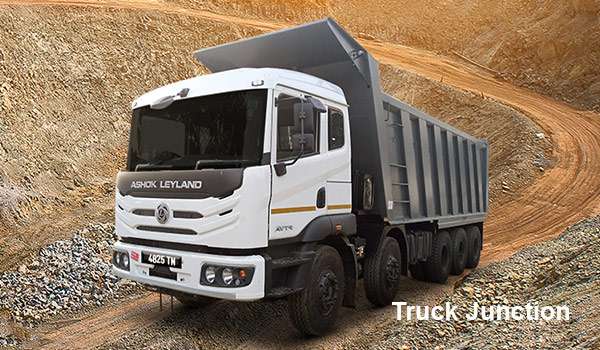Since the time when deliveries were booked using paper maps and long-distance calls, the trucking industry has advanced significantly. Trucking firms can now track and monitor their fleets, loads, and drivers in real-time due to developments in GPS technology. As a result, the trucking sector is being revolutionised by GPS technology due to better logistics, load surveillance, safety, and carbon footprint. This essay will examine how GPS makes the trucking business safer, more cost-effective, and more efficient. So grab your seat belts and come with us as we explore the fascinating world of GPS in trucking!
The Impact Of GPS Technology On The Trucking Industry
The Global Positioning System, or GPS, has revolutionised several industries, including transportation. For example, modern trucking businesses rely on GPS for real-time monitoring and tracking of their vehicles and goods. In addition, some truck models like Mahindra and Mahindra Truck also enable this GPS technology. Due to this vital technology, the transportation industry is now safer, more economical, and more effective.
Benefits Of Using GPS In Truck
Improved Logistic
Improving logistics and route planning is one of the main advantages of GPS technology for the trucking sector. Trucking businesses can always know where their vehicles are due to GPS tracking systems, allowing them to plan quick, safe, and fuel-efficient routes. In addition, trucking businesses can use GPS information to detect congested locations, roadworks, and other factors affecting delivery times and modify their ways as necessary. This shortens transit times and guarantees that goods arrive at their destination on schedule.
Keeping Track Of Your Cargo
By adopting GPS technology, trucks may enhance their load management, logistics, and route planning. GPS tracking systems enable real-time tracking of cargo position and activities, lowering the risk of theft or loss and guaranteeing that the package reaches its destination securely. Also, GPS tracking systems give trucking businesses useful information on the truck's handling, which helps streamline the loading and unloading procedures and lowers the likelihood of cargo damage.
Safer Roads Ahead
Safety is a key advantage of GPS technology for the trucking sector. The owner of an Ashok Leyland Truck can install GPS technology to avail of these benefits easily. It can supervise their drivers' driving habits, such as speeding, harsh braking, and abrupt lane changes, using GPS monitoring devices. By providing feedback on their driving behaviours, this data can assist drivers in decreasing collisions and increasing overall safety. GPS technology also allows trucking companies to monitor the condition of their vehicles, such as tire pressure and engine performance, and schedule maintenance before a breakdown occurs.
Reducing The Carbon Footprint
GPS technology is also helping the trucking industry to reduce its environmental impact. GPS technology may lower fuel use and emissions by adjusting routes and reducing idle time. This allows transportation companies to lower fuel costs, often a considerable expense for many organisations. It also encourages environmental protection.
Customer-Centric Trucking
Also, the trucking sector is becoming more customer-focused due to GPS technology. Transportation companies can enhance customer service and raise customer satisfaction by giving actual tracking data. Customers can follow the progress of their cargo and get alerts of the delivery, which helps to clear up any confusion and enhances communication between the trucking company and the client.
Addressing The Hurdles To Reaping The Benefits Of GPS Technology
Cost
Yet, there are difficulties in using GPS technology in the trucking sector. The expense of integrating GPS monitoring devices and related software is one of the biggest obstacles. Even though GPS technology costs have fallen recently, trucking firms, especially smaller ones, may still need to make a sizable investment. However, GPS technology's advantages generally surpass the initial expenses in terms of increased productivity, security, and customer service.
Data Security And Privacy
Another challenge is the issue of data security and privacy. GPS tracking devices collect important data on the movements and behaviours of drivers and cargo. This information must be safeguarded against unauthorised access and handled by data privacy regulations. The usage of data by trucking businesses must be transparently disclosed to consumers and drivers, and suitable security measures must be put in place.
Conclusion
In conclusion, GPS technology is revolutionising the trucking industry by giving businesses useful information about their fleets, drivers, and cargo. GPS technology is assisting trucking companies in becoming more productive, economical, and safe by enhancing logistics and route planning, load tracking and management, safety, environmental consequences, and customer service. Even while implementing GPS technology has drawbacks, the advantages frequently exceed them.


No comments yet